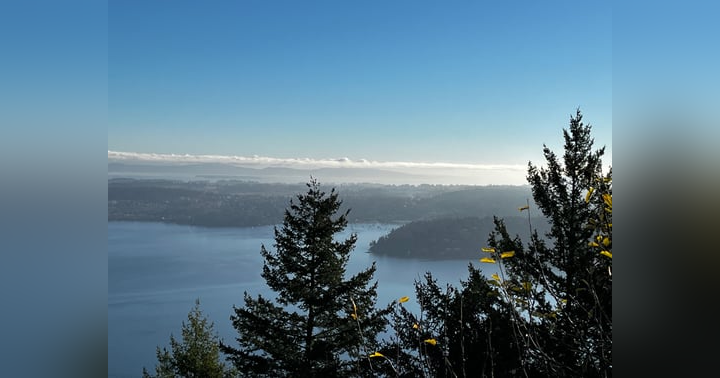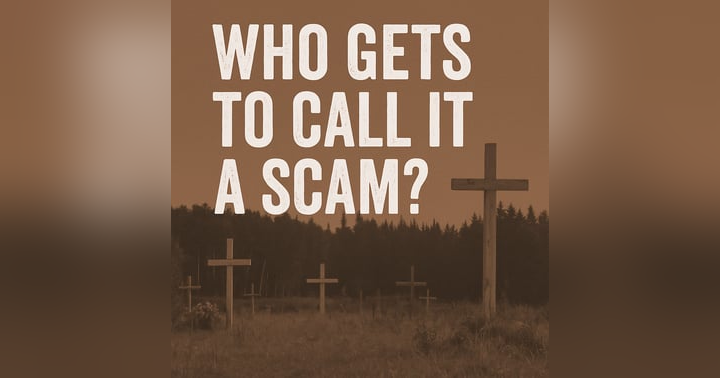Zen and the Art of Bridge Building

This essay accompanies Episode 7 of Reconsidering Canada, “Staring Down the State,” but it isn’t a recap. It’s a deeper dive into one of the episode’s most unsettling ideas: that settlers and Indigenous peoples don’t always share the same goals—and that’s not a problem to solve, but a truth to respect.
Drawing on the work of Eve Tuck, K. Wayne Yang, and Glen Coulthard, I explore what the ethic of incommensurability means for settlers. If we’re serious about supporting Land Back and Indigenous sovereignty, we need to stop mistaking visibility for solidarity—and start getting comfortable with not being at the center of the story.
Zen and the Art of Bridge Building
A settler’s guide to discomfort and ethical humility
Chris Bolster | June 4, 2025
You’ve probably been in a meeting or attended an event that begins with the now-familiar statement:
“I’d like to recognize that we are meeting on the traditional and unceded territory of…”
The intention is usually good. These acknowledgments aim to build bridges, show solidarity, and signal an organization’s commitment to Indigenous rights. But more often than not, they feel perfunctory. Symbolic. Even performative.
By the time the event ends, there’s unlikely to be any tangible shift in power. No land returned. No policy changed. No Indigenous governance strengthened.
But for the settlers in the room, there’s often a quiet sense of reassurance—confirmation that they’ve said the right words.
That they’re on the right side of history.
But I want to ask: What happens when these gestures are rooted in a desire to build bridges, but there isn’t a bridge to be built?
This is one of the most challenging ideas in Eve Tuck and K. Wayne Yang’s widely cited 2012 paper, Decolonization Is Not a Metaphor. In it, they introduce the concept of the ethic of incommensurability: the understanding that Indigenous and settler goals do not always align, and do not need to.
Trying to force alignment can flatten the struggle for Indigenous sovereignty. It turns decolonization into a metaphor—something symbolic, digestible, even cooperative—rather than what it is: the repatriation of land, life, and jurisdiction.
The word "decolonization" has become commonplace—a buzzword in academia, a term frequently dropped in meetings, training sessions, and media coverage. But as it has circulated more widely, its meaning has shifted. Settlers have co-opted the word, taming it into something less threatening, more manageable, and easier to say without squirming.
Because let’s face it: the repatriation of land, Indigenous life, and jurisdiction isn’t just a noble idea. It’s a direct challenge to the foundational power of the settler state—and to the comfort settlers have built atop that power.
So instead, many settlers have come to interpret decolonization as something more palatable—something like inclusion or mutual understanding. This appeals deeply to what we might call the liberal settler fantasy: the belief that allyship means partnership, and that solidarity can be practiced without sacrificing anything. It also fulfills a powerful emotional need: to be seen as “one of the good ones.”
As if we can support decolonization and still maintain control.
That’s not solidarity. That’s fantasy.
What this approach avoids is the discomfort of being left out.
Of not being invited to the table.
Of Indigenous people not asking for our opinion, not centring our feelings, and not working with us.
When Indigenous people draw clear boundaries—when they assert their right to lead on their own terms—settlers often mistake that for rejection. But it’s not rejection. It’s sovereignty. It’s self-determination. It’s not about us.
And yet, settler culture isn’t used to that.
Because decolonization doesn’t just challenge material control over land—it also challenges the settler fantasy that white people know best. It disrupts the 19th-century logic that casts the settler state as a civilizing force, a benevolent overseer, a natural leader. It pulls settlers from the center of the story.
And for many, that feels like freefall.
The idea of incommensurability is simple: some things cannot be measured by the same standard. They do not share a common unit of value, meaning, or evaluation. When applied to decolonization, the concept becomes clarifying and unsettling.
It means that true decolonization—the repatriation of Indigenous land and life—cannot be equated with social justice, equity, diversity, or inclusion.
Those may be worthy goals.
But they are not the same thing.
When settlers collapse these terms into one another, we erase the specificity and the radical nature of Indigenous struggles. We flatten the call for land and self-determination into vague aspirations of fairness. We turn a struggle for sovereignty into a metaphor for progress.
At its core, the ethic of incommensurability reminds us that settler and Indigenous goals are not always aligned.
And that they don’t need to be.
Assuming otherwise creates a false sense of unity and a hollow narrative of shared progress.
But this isn’t a call for disengagement.
It’s a call for respect, without assimilation.
The ethic of incommensurability asks settlers to hold space for Indigenous sovereignty and struggle without trying to make them comfortable, accessible, or legible within settler frameworks. It’s a demand for non-equivalence, grounded in ethical responsibility.
Indigenous people do not owe settlers inclusion in their movements.
They do not have to invite us in.
They are not required to explain themselves, soften their positions, or translate their decisions into terms we prefer.
That might mean communities make decisions based on Indigenous law, not Canadian political logic.
That might mean settler allies are excluded from certain spaces.
That might mean we are asked to listen without being centred.
And that’s the work: to sit with the discomfort of not being included, not being understood, and not being in control because the point was never to make decolonization feel easy.
It’s one thing to say that decolonization requires settlers to stop centring ourselves.
It’s another thing entirely to understand what that actually demands.
Because stepping out of the center doesn’t mean stepping away, it doesn’t mean we have no role to play.
And it certainly doesn’t let us off the hook.
The opposite is true.
If we take the ethic of incommensurability seriously, then supporting decolonization means holding space for Indigenous sovereignty, even and especially when it doesn’t align with settler expectations.
It means supporting Land Back even when it doesn’t come with a co-governance agreement or a feel-good partnership.
It means defending Indigenous decisions that are made without settler input, especially when they challenge dominant ideas about resource development, pipelines, conservation, or land use.
It means giving up the assumption that Indigenous perspectives should be filtered through settler frameworks, evaluated by settler standards, or made legible for settler comfort.
This isn’t easy work. It’s not clean or tidy. It doesn’t end with a certificate or a committee or a well-worded land acknowledgment.
But it’s real. And it’s necessary.
The Dene political theorist Glen Coulthard has been one of the most influential voices challenging settler frameworks of reconciliation. In his book Red Skin, White Masks, he critiques Canada’s emphasis on recognition—the tendency of the state to accommodate limited forms of Indigenous identity, representation, or culture, so long as they remain non-threatening to settler sovereignty.
Coulthard argues that this politics of recognition can serve to maintain colonial power, because it keeps settlers and the state at the center of the relationship. As he writes:
“Recognition is not only misrecognition—it is a form of subjection.”
In other words, when settlers insist on being recognized in Indigenous struggles—when we demand inclusion, visibility, or affirmation—we often impose our frameworks, terms, and presence. We mistake visibility for solidarity.
But decolonization is not about being seen.
It’s about stepping aside.
It’s about letting go.
And that’s the part many of us are still learning how to do.
Though it’s a constant temptation to believe that decolonization is something settlers can define, the truth is: it’s not ours to define.
It’s not our story.
But that doesn’t mean settlers need to be—or should be—silent.
If the ethic of incommensurability means anything, it means learning to hold space for Indigenous sovereignty without assuming that Indigenous and settler goals are the same.
This ethic demands that settlers sit with the knowledge that some truths are not ours to interpret, explain, or fix.
And we have to be okay with that.
Maybe we could call it ethical humility.
Because the alternative is just more of the same: more centring, more misrecognition, more settler control dressed up as progress.
So as this reflection comes to a close, I want to leave you with a question:
What would it mean to support a future we don’t fully understand?
Maybe that’s the beginning of something better.




